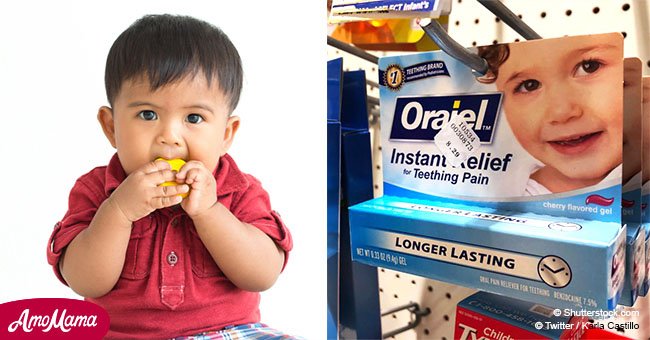
FDA urges parents to avoid using numbing medicine for teething babies
It is a difficult time in a parent's life, because babies can be particularly fussy, but there is a compelling reason not to resort to certain medications.
The United States Food and Drug Administration (FDA) has issued a warning to parents against using numbing gels and creams for teething babies because of the high risks associated with such treatments.
Teething is a very normal part of early development in a child, and doesn't need to be "treated" by either homeopathic remedies or prescription over the counter medication.
Furthermore, these medications can result in serious illness, or even death.
The reason for this is benzocaine. This local anesthetic is the active ingredient in most oral health care products used to treat teething. The list includes Anbesol, Baby Orajel, Cepacol, Chloraseptic, Hurricaine, Orabase, Orajel, and Topex.
For starters, these substances wash out of a baby's mouth within minutes once they are applied, making them extremely ineffective.
Secondly, and more importantly, the use of these products can lead to a condition called methemoglobinemia, which inhibits the oxygen-carrying capacity of red blood cells.
Instead, the FDA suggests other soothing methods during teething.
Babies start teething between 4 and 7 months old. The symptoms that they may experience include mild irritability, a low-level fever, drooling, and a need to chew on hard objects.
Because of the many changes a baby is going through around the same time, teething is often incorrectly blamed for a range of other problems, including congestion, coughing, vomiting, diarrhea, and sleep disturbances.
If babies are fussy during teething, the FDA suggests parents can gently rub the child's gum, or give them a teething ring - not a frozen one - to chew on.
And it's not just babies who are affected by the serious health risks of benzocaine in oral health care.
Many doctors and dentists make use of sprays containing the substance to numb mucous membranes when performing medical and surgical procedures. Benzocaine is not approved by the FDA for these uses.
For anyone who suffers from breathing problems such as asthma, bronchitis, or emphysema, is elderly, has heart disease, or is a smoker, there is an even greater risk with the use of Benzocaine.